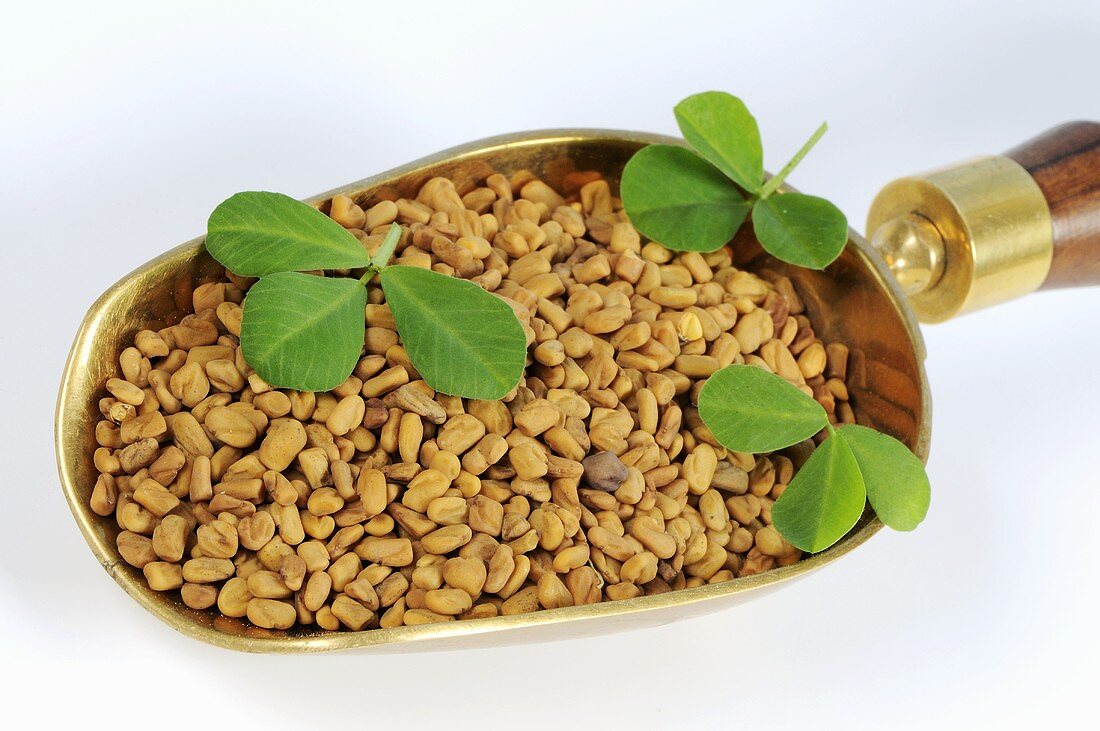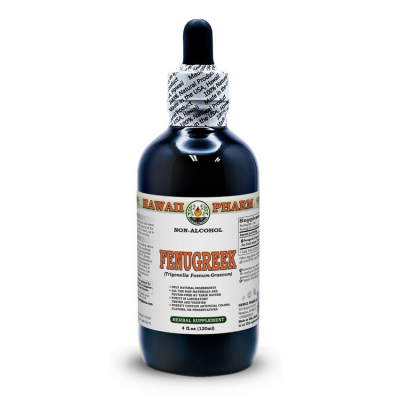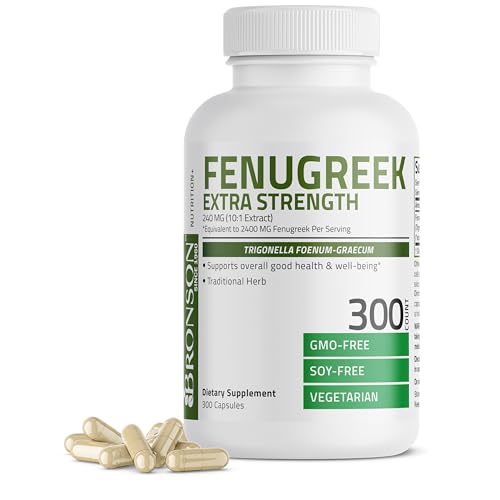
Fenugreek for Gallbladder Health
Fenugreek (Trigonella foenum-graecum) is a culinary and medicinal herb that is especially popular in Indian cuisine and Ayurvedic medicine. The seeds of the Trigonella foenum-graecum plant are the primary part used both in food and medicine, though the leaves and sprouts may also be used in some contexts.Fenugreek is well-known for its ability to regulate blood sugar levels, particularly in the liver. An amino acid known as 4-hydroxyisoleucine, which is present in fenugreek, can help stimulate the production of insulin, therefore acting as an anti-diabetic treatment. Blood sugar dysregulation of any kind (including that seen in diabetic patients) is closely associated with higher cholesterol levels and fatty buildups in the body (including in the liver), and in this way is related to gallbladder disease in that high cholesterol and fat buildup in the liver both lead to the development of gallstones and other gallbladder-related issues over time.
 F
enugreek has also been studied in its direct effect on bile. Trigonella foenum-graecum can reduce cholesterol levels in existing bile acids (therefore thinning them out and allowing them to flow more smoothly, and also reducing the chance of bile sludge or gallstone development), besides actually increasing the concentration of bile acids 4 times over. More concentrated, better-flowing bile acids mean that fats that enter the small intestine will be digested more effectively.
F
enugreek has also been studied in its direct effect on bile. Trigonella foenum-graecum can reduce cholesterol levels in existing bile acids (therefore thinning them out and allowing them to flow more smoothly, and also reducing the chance of bile sludge or gallstone development), besides actually increasing the concentration of bile acids 4 times over. More concentrated, better-flowing bile acids mean that fats that enter the small intestine will be digested more effectively.
One study done on mice in India demonstrated that use of fenugreek could not only prevent gallstone formation by reducing cholesterol levels, but that this herb can also dissolve existing gallstones. Other studies have also shown that the inherent antiinflammatory qualities of fenugreek on the entire gastrointestinal system (to which the gallbladder is closely connected) may also play a role in preventing gallbladder disease.
Other medicinal applications of fenugreek include:
- Improvement of male sexual performance
- Weight loss
- Increases breast milk production
- Treats and prevents some cancers
- Remedy for acid reflux and heartburn
- Fever remedy (when made into a tea with lemon and honey)
- Treatment of eczema, burns, and abscesses
- Treats gout
- Speeds up labor
- Treats polycystic ovarian syndrome (PCOS) and painful menstruation
- May treat vitamin B1 deficiency (beriberi)
- May be valuable for the treatment of some respiratory issues, including bronchitis, tuberculosis, chronic coughs, and more
- Treats atherosclerosis
Women who are pregnant should not use fenugreek since it can stimulate uterine contractions (additionally, some studies show that this plant may cause birth defects when used medicinally during pregnancy). Unless the woman is in the later stages of her pregnancy and she is using this herb specifically to encourage labor, it should not be used during gestation (and even in this case, fenugreek should only be used under the supervision of an experienced midwife, doctor, or another medical professional).
Using fenugreek medicinally is generally safe, but there are some side effects still. Bloating, indigestion, gas, diarrhea, and other gastrointestinal symptoms are common, as is a distinctive “maple syrup” type odor in the urine or body perspiration (note that if a breastfeeding mother uses fenugreek, her baby may also have a “maple syrup” type smell to his/her urine; this is not an indication of Maple Syrup Urine disease, and the mother should make sure to tell the baby’s healthcare provider that she is using fenugreek).
Fenugreek Dosage
Fenugreek may be taken in capsule form, as a tincture, or made into a tea using the seeds. Fenugreek powders are also available. Note that the flavor of fenugreek seed tea and/or fenugreek powder is distinctive; the herb is lightly sweet with some bitterness, and has a flavor that vaguely resembles maple syrup. Follow the dosing instructions below according to which form of fenugreek you’ll be taking:- Capsules - Take 2 fenugreek capsules of 400mg each with every meal. Choose a brand that contains 20% hydroxyisoleucine. You may reduce this dosage back to 1 capsule with each meal, and even down to only 1 capsule daily when you’re ready.
- Tincture - Following the same dosing instructions as with the capsules.
- Tea - Add 1 teaspoon of fenugreek seeds to 1 cup of boiling water for 1 serving. Let boil for 5-7 minutes. Add raw honey or stevia drops to sweeten, and drink hot as needed (drink a cup before every meal or snack to start). NOTE: You may also prepare fenugreek water by leaving fenugreek seeds in water overnight, and then you can drink this water throughout the day.

Related Posts: https://alivenhealthy.com/2022/07/12/holy-basil-tulsi-herbal-alternative-to-hormone-therapy-and-gallstone-treatment/ https://alivenhealthy.com/2022/06/26/natural-fumaric-acid-cure-for-multiple-sclerosis-psoriasis-and-gallbladder-diseases/ https://alivenhealthy.com/2022/07/12/gold-coin-grass-herba-lysimachiae-jin-qian-cao-herbal-remedy-for-gallstones-and-kidney-stones/ https://alivenhealthy.com/2022/06/23/alpha-lipoic-acid-a-treatment-for-non-alcoholic-fatty-liver-disease-and-cholesterol-gallstones/ https://alivenhealthy.com/2022/06/21/vitamin-k2d3-an-at-home-orthomolecular-treatment-for-gallstones-and-porcelain-gallbladder/ https://alivenhealthy.com/2022/06/11/dissolve-gallstones-at-home-using-apple-juice-apple-cider-vinegar-and-malic-acid/ https://alivenhealthy.com/2022/06/11/restoring-libido-by-restoring-gallbladder-health/ https://alivenhealthy.com/2022/06/13/chlorine-dioxide-solution-cds-miracle-mineral-solution-mms-for-gallstones-and-gallbladder-health/ https://alivenhealthy.com/2022/06/08/is-morning-sickness-caused-by-gallstones-the-gallbladders-role-during-pregnancy/ https://alivenhealthy.com/2022/06/08/iodine-deficiency-and-the-gallbladder-the-gallbladder-thyroid-connection-and-how-iodine-therapy-can-help/

 Bronson Fenugreek Seed Powder Capsules Extra Strength, Trigonella Foenum-Graecum, Non-GMO, Soy-Free, Vegetarian, 300 Capsules
Bronson Fenugreek Seed Powder Capsules Extra Strength, Trigonella Foenum-Graecum, Non-GMO, Soy-Free, Vegetarian, 300 Capsules
 Frontier Co-op Whole Fenugreek Seed, 1-Pound Bulk, Used In Ethnic Cuisines, For Max Flavor & Aroma Toast Prior to Use, Kosher(Pack of 3)
Frontier Co-op Whole Fenugreek Seed, 1-Pound Bulk, Used In Ethnic Cuisines, For Max Flavor & Aroma Toast Prior to Use, Kosher(Pack of 3)












